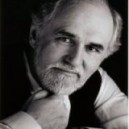Psychology Degrees, Schools, and Careers in Maryland
 It’s estimated that approximately 1.5 million undergraduates around the country complete an introductory or general psychology course each year and while far fewer of those students go on to earn an actual degree in the field, it remains one of the most popular majors for undergraduates in any of the 50 states. Maryland may not confer as many psychology degrees as states like California or Florida or New York, but according to the 2016 Data Book from the Maryland Higher Education Commission, colleges and universities in the state conferred 2,176 Bachelor's degrees, 516 Master's degrees and 60 doctoral degrees in psychology. On a national scale, those numbers are smack in the middle of the pack, but it should be obvious to interested students that there are plenty of options in the subject for them. There are more than 50 colleges or universities in the Free State and that doesn’t even include Washington D.C., which should probably count as a part of Maryland for all intents and purposes when talking about educational options. There are so many options and so many possible educational experiences, that it’s easy to see why Maryland is a worthwhile state to check out when you are doing your research on psychology degrees and programs.
It’s estimated that approximately 1.5 million undergraduates around the country complete an introductory or general psychology course each year and while far fewer of those students go on to earn an actual degree in the field, it remains one of the most popular majors for undergraduates in any of the 50 states. Maryland may not confer as many psychology degrees as states like California or Florida or New York, but according to the 2016 Data Book from the Maryland Higher Education Commission, colleges and universities in the state conferred 2,176 Bachelor's degrees, 516 Master's degrees and 60 doctoral degrees in psychology. On a national scale, those numbers are smack in the middle of the pack, but it should be obvious to interested students that there are plenty of options in the subject for them. There are more than 50 colleges or universities in the Free State and that doesn’t even include Washington D.C., which should probably count as a part of Maryland for all intents and purposes when talking about educational options. There are so many options and so many possible educational experiences, that it’s easy to see why Maryland is a worthwhile state to check out when you are doing your research on psychology degrees and programs.
As one might expect, Maryland ranks in the middle of the pack in terms of costliness of the degree as well. The average enrollment cost for a full-time student in Maryland for 2013-14 ranged from $18,881 for in-state students at public universities all the way up to $47,023 for students at private universities. These numbers aren't meant to be discouraging either because scholarships and less expensive options are plentiful. Instead these numbers are meant to serve as a reminder that picking the right school and right program for your learning ability and personality is essential. Some schools are recognized for their graduate programs in specific psychology disciplines such as school psychologists, and other psychology schools in Maryland offer a more comprehensive psychology education with degree possibilities ranging from a bachelor’s degree all the way through a doctoral degree. It isn’t particularly helpful to sit here and go through the details of every psychology program offered by every psychology school in Maryland, but it is worthwhile to spotlight a few of the programs and universities that should be at the top of your list when you start your research.
Do understand that these aren't meant to be a comprehensive look at psychology schools in Maryland and that everyone is encouraged to do their own research to ensure they are considering all of their options before they choose the school for them.
Baltimore Psychology Degrees, Schools, and Careers
Maryland’s state capital is the 23rd most populous city in the country, which is why it’s surprising to realize that the Baltimore-Towson Metropolitan Division has more professional psychologists than most other metropolitan areas in the country according to the U.S. Bureau of Labor Statistics and there are more than 1,600 professional psychologists working in the metro area. As one might expect, where there are psychologists, there are also psychology schools. The prestigious Johns Hopkins University has one of the 26 best graduate psychology programs in the country according to U.S. World News & Report and it also offers a variety of reputable undergraduate psychology degrees as well. Other private schools like Towson University and Loyola Maryland also boast superb academic reputations and that carries over into the psychology departments as well. If you can’t afford a private school education, don’t fret, because the University of Maryland-Baltimore and the University of Maryland Baltimore County and even Morgan State University all offer undergraduate and graduate level psychology degree programs in a variety of specialty fields. There are also for-profit psychology schools near Baltimore such as the University of Phoenix and plenty other schools to choose from as well. Make sure to do the research before making a choice.
Washington D.C. Psychology Degrees, Schools, and Careers
Although the District isn't technically a state and it shouldn't technically count as a part of Maryland, it effectively counts as part of the state when you are looking at universities from a geographical standpoint. Also, Washington-Arlington-Alexandria, DC-VA-MD-WV Metropolitan Division ranks in the top-10 metropolitan areas when it comes to psychologists employed as of May 2022 according to the BLS and there are almost 3,500 professional psychologists in the metro area. The headlining psychology schools in the District are probably Georgetown University, American University and George Washington University, all of which are expensive, but also well-regarded schools with excellent psychology degree programs at both the undergraduate and graduate level. The University of Maryland-College Park doesn't technically count as a school in Washington D.C., but it is only 20 minutes from downtown and as the state’s flagship university, it has plenty to offer aspiring psychology students. Howard University is one of the finest historically black universities in the country and its psychology degree programs are a big reason why. Also the Catholic University of America offers psychology degree programs. There are a number of for-profit psychology schools in the District, including the University of Phoenix, which has a location downtown. Students would be wise to consider all options, even those not listed, before making the important selection.
Read about the notable psychology professors in Washington D.C.
Online Psychology Schools in Maryland
The phrase “online psychology schools” is probably too broad to be appropriately used all the time. Psychology is a massive subject that encompasses many different disciplines and specialties. So while fully online psychology schools in Maryland are basically non-existent, the state university system has systems has a number of traditional and online schools that offer online psychology classes and online psychology degree programs ranging in subject from social work and substance abuse counseling, to clinical and counseling psychology.
The type of degree you choose and the school you attend will depend in part on what sort of psychology-related career you are looking to start. While many colleges and universities offer associate degrees and bachelor degrees in psychology, those will generally open fewer career doors than an advanced degree in the field. A bachelor’s degree will ensure your qualifications as a psychologist’s assistant or psychology research associate, but it does not qualify graduates for a career as a psychologist.
In Maryland, practicing clinical psychology requires the practitioner to have earned a doctorate degree and passed many rigorous on-the-job training requirements as well. According to a survey from O*NET Online, 76 percent of respondents felt mental health counselors of any sort needed to have a master’s degree and a different survey showed that 84 percent of respondents felt that clinical psychologists needed a doctoral or professional degree.
The schools offering online psychology degrees and courses in Maryland are mostly limited to state universities. For example, University of Maryland – University College has one of the most expansive online course offerings in the country and that includes psychology courses and degrees and The University of Maryland-College Park offers a number of online psychology courses but not degrees.
Also, the demand for psychology degrees has also meant that national online education providers have begun to offer psychology degrees in Maryland. Schools like Capella University and Northcentral University offer psychology degrees of different levels in subjects ranging from social and business psychology to industrial/organizational psychology and addiction psychology.
Choosing the Right School
Choosing a school is a huge decision that comes with a large financial commitment, making this a pressure-packed and pivotal decision for students looking into psychology degrees. Some students may not consider price as the most important factor in their decision, but every decision comes with cost attached and so no matter what reason a student is considering a school, cost plays a role and the student is assuming a large risk. That risk makes the decision important and it makes getting all of the information about a school pivotal for helping that student make a decision that will put them in a place to succeed and thrive. Different aspects of different programs will appeal to different students, but here are some general factors to consider when picking the right school.
- Graduation Rate: Graduating from college is the reason why people go to college in the first place and so students should want to attend universities that have a proven track record of graduating their students. In the grand scheme of things, graduation rates are a rather basic measuring stick for determining the worth of a school, but a school that isn't graduating a lot of its students should raise red flags.
- Freshmen Retention Rate: Although it is admittedly more complicated than this simple definition. The freshmen retention rate is a barometer for how many first-year students actually enjoy their experience at the school. The logic should be easy to follow. The more students who enjoy their experience at the university, the more that will be back next year. If students don't like their first year, they will transfer and that will hurt the rate. Not every experience is alike and likening a student's situation to that of another would be a mistake, but if a wide swath of the first-year students aren't returning for their second year, that should tell students something about the culture.
- Employment: If graduating from college is the reason students attend college in the first place, then getting a job and securing employment is the reason students try to graduate. Finding a job is and should be the responsibility of the student, but the school should have an active alumni office and they should have connections with local employers both big and small that will allow their students to skip long application lines. The student does most of the work, but it is always nice for students to get an extra push from their school.
- Accreditation: Most states won't allow aspiring psychologists to seek licensure unless they have a degree from an accredited institution. Any school that is accredited shouldn't have any problem telling its students, so schools that duck the question of accreditation might be worth dismissing out of hand.
- Curriculum/Faculty: The meat and potatoes of the program are the most important part. Students looking for the fast track to a career in psychology shouldn't choose a program with more open and exploratory curriculum options. It is true that some of the curriculum is standardized, but field work and internships and lab work will always differ from program to program. Part of the reason for that difference is the quality of faculty. Make sure the teachers are experienced and well-educated and have connections in the industry. After all, they are who students interact with on a daily basis.
Career Opportunities for Psychologists in Maryland
As of May 2022, Maryland was home to about 2,900 clinical, counseling, school, and other types of psychologists – more than most states in the country — who earned an annual mean wage of between $88,520 and $110,690 depending on specialty. Nationally, about 49,000 psychologists are employed by elementary and secondary schools, making them the largest employer in the industry. Other employers include private offices of health practitioners, outpatient clinics, and family services. The BLS also reported that between 2021 and 2031, employment in the profession was expected to grow by 6% with specific growth varying based on specialty. Demand for psychologists will increase based on people’s increasing use of psychologists to help solve their ills, the increasing reliance of doctors and healthcare professionals on psychological treatment and diagnosis’ and the increasing use of organizational psychologists by businesses looking to run their company more efficiently.
2022 US Bureau of Labor Statistics and O*NET (a website sponsored by the US Department of Labor) job market trends and salary figures for psychologists, clinical and counseling psychologists, school psychologists, and psychologists (all other) are based on national data, not school-specific information. Conditions in your area may vary. Data accessed August 2023.
Psychologist Salary in Maryland
| Location | 10% | 25% | Median | 75% | 90% |
|---|---|---|---|---|---|
| United States | $44,500 | $76,730 | $105,780 | $119,460 | $133,470 |
| Maryland | $32,330 | $56,720 | $106,100 | $130,050 | $157,270 |
| Baltimore-Towson, MD | $27,560 | $49,180 | $98,910 | $116,900 | $146,430 |
| Bethesda-Rockville-Frederick, MD Metropolitan Division | $52,180 | $79,930 | $112,370 | $130,820 | $153,340 |
Table data taken from 2020 BLS (http://www.bls.gov/oes/current/oes193039.htm)















































